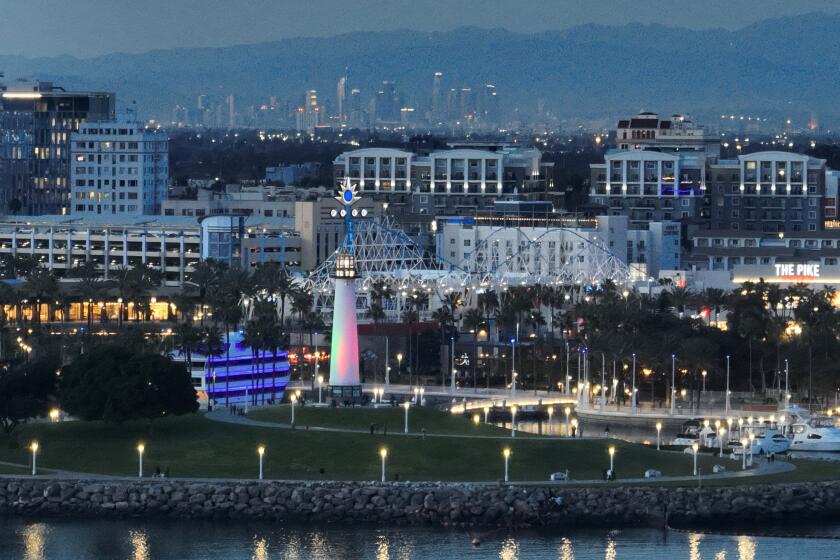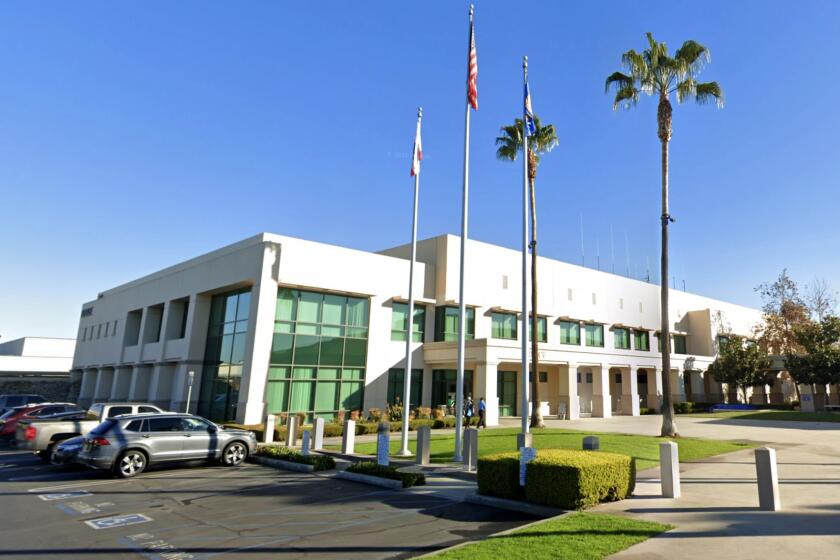It’s not their business
THERE ARE PLENTY of good reasons for a city to carefully scrutinize applications for liquor licenses. Does the applicant have a history of allowing drunks to gather on its premises? Is there a school across the street? Is the property a magnet for crime? Permitting is an integral part of the police power that cities use to protect neighborhoods. It is not a tool to advance the interests of political supporters.
But some local elected officials, from Long Beach to San Fernando, are now mulling holds on grocery stores’ liquor licenses to extract concessions from management in the supermarket labor dispute. The argument is that decent pay and benefits are quality-of-life issues, just like drunks gathering in a parking lot.
Nice try. It’s one thing to challenge liquor licenses because of concerns related to selling liquor. It’s another thing altogether to use liquor licenses as a pretext for bringing the full power of a city to bear on one side in private contract talks.
Angelenos want to avert a second supermarket strike in four years, so any effort by a political figure to be an honest broker would be welcome. But distorting the lawmaking and permitting processes to pressure one side invalidates any official’s credentials as a peacemaker.
The Los Angeles City Council sometimes appears as though it’s more interested in promoting labor’s interests than in circumventing a strike. In 2005, the council passed an ordinance to require the purchasers of large supermarkets to keep the old payroll intact for at least 90 days. The law was rushed through so it could apply to the purchase of Albertsons by Supervalu Inc.; grocers predictably, and properly, sued. A trial is set for August.
That law was signed by Mayor Antonio Villaraigosa. But the mayor’s track record on labor disputes is different from the council’s. Villaraigosa was an honest and constructive broker in the Metropolitan Transportation Authority talks last year and helped to avert a strike. He guided hotels and their employees to a contract soon after his election. No one doubts his labor credentials, but he has used his position of trust to forge agreements, not to beat management into submission.
The mayor may well be playing a good-cop/bad-cop game, allowing the City Council to be the crazy, unreasonable party so he can come off as the cooler head. But if there’s a chance for the mayor to resolve this dispute, he should take it. The council, on the other hand, should simply take a seat.
More to Read
Start your day right
Sign up for Essential California for news, features and recommendations from the L.A. Times and beyond in your inbox six days a week.
You may occasionally receive promotional content from the Los Angeles Times.






